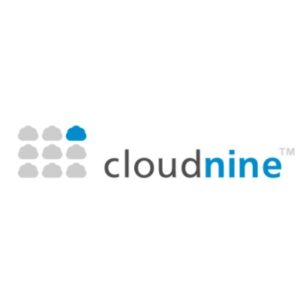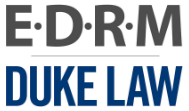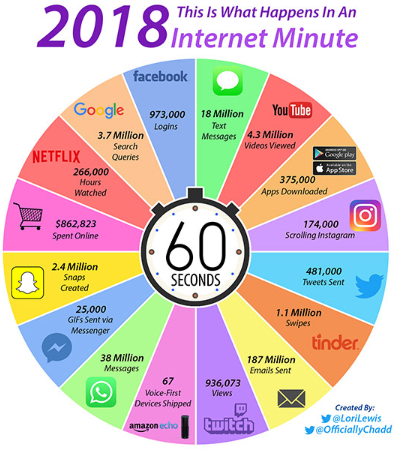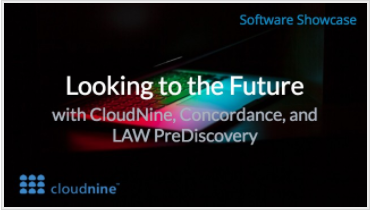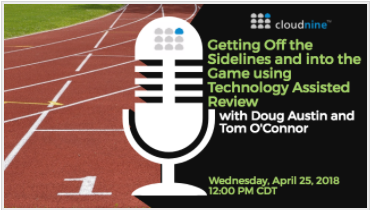Electronic Discovery
CloudNine Voted as a Leading National eDiscovery Provider in Nine Categories in 2018 Corporate Counsel Reader Ranking Survey
Third Annual Best of Corporate Counsel Survey Highlights In-House Community Recognition of CloudNine
CloudNine, a leader in simplifying and automating legal discovery, today announced its recognition as a leading eDiscovery provider by voters in Corporate Counsel Magazine’s 2018 “Best of Corporate Counsel” annual reader ranking survey.
Corporate Counsel’s Best of 2018 Survey was published in May with the top three responses in each category shared in the annual survey results. CloudNine was voted as a leading provider in the following nine reading ranking categories:
- Best Online Review Platform (3)
- Best End-to-End E-Discovery Provider (2)
- Best Technology Assisted Review E-Discovery Solution (3)
- Best Legal Hold Solution (2)
- Best Managed Document Review Services (3)
- Best Managed E-Discovery & Litigation Support Service Provider (3)
- Best Data & Technology Management E-Discovery Provider (2)
- Best Information Governance Solution (1)
- Best Predictive Coding E-Discovery Solution (3)
Voting for the survey was conducted online via ballot and limited to those working within in-house corporate legal and compliance departments.
“CloudNine is excited to be recognized by in-house corporate legal and compliance professionals as a national leader in the delivery of eDiscovery software and services for the third consecutive year,” shared Brad Jenkins, Chief Executive Officer of CloudNine. “We highly value this continued vote of confidence and will continue to strive to build on that confidence with discovery automation technology and professional services that simplify eDiscovery.”
About CloudNine, The eDiscovery Company
Founded in 2002, and based in Houston, Texas, CloudNine (cloudnine.com) is a legal discovery technology company with expertise in simplifying and automating the discovery of data for audits, investigations, and litigation. Used by more than 2,000 legal and business customers worldwide including more than 50 of the top 250 Am Law firms and many of the world’s leading corporations, CloudNine’s off-premise and on-premise software and services help customers gain insight and intelligence on electronic data.
CloudNine has been highlighted by industry experts in reports, reviews, and surveys including Gartner, 451 Research, Blue Hill Research, Corporate Counsel Magazine, the New York Journal, and Texas Lawyer. CloudNine also publishes the eDiscovery Daily Blog, a popular trusted source for legal industry information. A leader in eDiscovery simplification and automation, you can learn more about CloudNine at cloudnine.com.
For more information contact:
CloudNine
PR@cloudnine.com

It’s Not Too Late to Attend This Year’s EDRM Workshop at Duke: eDiscovery Best Practices
It’s hard to believe, but it’s almost time for another Spring EDRM Workshop meeting! For the second year, the 2018 EDRM Spring Workshop will be held at EDRM’s new home at Duke University Law School in Durham, North Carolina. So, what can you expect at this year’s meeting? Let’s take a look.
The Workshop will be held at Duke Law School at 210 Science Drive, Durham, NC 27708-0362 on Wednesday, May 23 through Friday, May 25.
Sessions will include working meetings and updates on the TAR guidelines project, the GDPR project, and a new project to revise the EDRM model(!), as well as sessions to launch new efforts to create a template for proportionality analysis and address issues in information governance. Project teams will meet during the afternoon of Wednesday, May 23rd; the general event will begin with a reception at 6 p.m. Wednesday and will conclude by noon on Friday, May 25th.
Believe it or not, you don’t have to be an EDRM member to attend. The conference fee is $650 for non-members; $500 for members (the fee covers meeting expenses and meals). Contact edrm@law.duke.edu if you are a member but have not received the discount code. If you’re a non-member, you can add an annual EDRM membership for just $50 when registering for the workshop, for a total payment of $700 for membership and workshop registration.
If you’re coming in from out of town, a limited number of rooms on a “first-come first-served” basis have been reserved at the Washington Duke Inn at the rate of $199.00 per night plus tax through May 7. You can also book your room online at this link: Duke Law EDRM 2018 Workshop.
I’ve been coming to EDRM Workshop meetings since the second year of EDRM’s existence in 2006 and last year was one of the best meetings ever! The Duke campus is beautiful and the meeting venue is first rate. I will be there again this year and so will several of my colleagues from CloudNine! For my recap of last year’s meeting, click here. Will we see you there?
So, what do you think? Do you plan to attend this year’s EDRM meeting? Please share any comments you might have or if you’d like to know more about a particular topic.

Sponsor: This blog is sponsored by CloudNine, which is a data and legal discovery technology company with proven expertise in simplifying and automating the discovery of data for audits, investigations, and litigation. Used by legal and business customers worldwide including more than 50 of the top 250 Am Law firms and many of the world’s leading corporations, CloudNine’s eDiscovery automation software and services help customers gain insight and intelligence on electronic data.
Disclaimer: The views represented herein are exclusively the views of the author, and do not necessarily represent the views held by CloudNine. eDiscovery Daily is made available by CloudNine solely for educational purposes to provide general information about general eDiscovery principles and not to provide specific legal advice applicable to any particular circumstance. eDiscovery Daily should not be used as a substitute for competent legal advice from a lawyer you have retained and who has agreed to represent you.
Court Affirms Ruling in Battle Between eDiscovery Providers Over Hired Sales Agents: eDiscovery Case Law
Remember the lawsuit filed by DTI against LDiscovery and four former sales agents of DTI who were hired by LDiscovery, claiming they misappropriated trade secrets, interfered with client relationships and breached their contracts? Last year, an opinion provided by New York District Judge Jed S. Rakoff last week detailed his rejection of all arguments by DTI that led to his denial of a motion for a preliminary injunction. Last week, the Second Circuit affirmed the ruling, determining that there is no basis to infer that LDiscovery engaged in any wrongdoing.
An article in Bloomberg Law (E-Discovery Firm Dodges Rival’s Trade Secrets Suit, written by Michael Greene, hat tip to Rob Robinson’s Complex Discovery blog) covered last week’s ruling by the appellate court. In its ruling, the Court stated “there appears no basis in the amended complaint from which we can plausibly infer that LDiscovery is liable for the misconduct alleged”, noting that the “amended complaint did not identify a single customer who was actually brought to LDiscovery”. The court also noted “Nor does there appear any support for DTI’s contention that the Individual Defendants had not fully complied with their one-year non-competition covenants.”
DTI filed its lawsuit last April against four salesman (who had originally worked for Epiq prior to DTI’s acquisition of Epiq) and LDiscovery, after they resigned from DTI in January. DTI had contended that the salesman had breached their nondisclosure covenants by failing to return two thumb drives in their possession, and that they had breached their employee non-solicitation clauses by jointly searching for new employment and also by allegedly soliciting two other DTI employees, but Judge Rakoff stated that agreement was “unenforceable insofar as it purports to prohibit at-will employees, who have yet to accept an offer of new employment, from “inducing” or even “encouraging” their coworkers to leave their present employer.”
As a result, Judge Rakoff dismissed the claims against LDiscovery and the appellate court affirmed the ruling last week. The case is Doc. Techs., Inc. v. LDiscovery, LLC, 2018 BL 143523, 2d Cir., 17-2659-CV, 4/24/18.
So, what do you think? How enforceable should non-compete agreements be? As always, please share any comments you might have with us or let us know if you’d like to know more about a particular topic.

Sponsor: This blog is sponsored by CloudNine, which is a data and legal discovery technology company with proven expertise in simplifying and automating the discovery of data for audits, investigations, and litigation. Used by legal and business customers worldwide including more than 50 of the top 250 Am Law firms and many of the world’s leading corporations, CloudNine’s eDiscovery automation software and services help customers gain insight and intelligence on electronic data.
Disclaimer: The views represented herein are exclusively the views of the author, and do not necessarily represent the views held by CloudNine. eDiscovery Daily is made available by CloudNine solely for educational purposes to provide general information about general eDiscovery principles and not to provide specific legal advice applicable to any particular circumstance. eDiscovery Daily should not be used as a substitute for competent legal advice from a lawyer you have retained and who has agreed to represent you.
What Happens in the Internet Each Minute in 2018? More Than Ever: eDiscovery Trends
The past two years, we’ve taken a look at a terrific infographic each year that illustrated what happens within the internet in a typical minute. 2018 is a new year and it’s always fun to take a fresh look. So, let’s take a look at what happens in an internet minute in 2018.
But first, this week’s eDiscovery Tech Tip of the Week is about Creating Fields. Classifying documents as responsive, non-responsive or privileged and recording and tracking information about the documents during the review and production process is key to effective workflow management of the discovery process as a whole. The easier it is to be able to create the fields you need to classify and track documents through the review and production process.
To see an example of how Creating Fields is conducted using our CloudNine platform, click here (requires BrightTalk account, which is free).
As for the internet minute, this updated graphic, once again created by Lori Lewis, illustrates what happens within the internet in a typical minute in 2018. There are a couple of different categories tracked in this graphic than last year’s, but most are the same. Once again, the ones that are the same are all up compared to last year – some more than others (is Netflix viewing really up 3 1/2 times more than last year?).
Here is a comparison between 2017 and 2018 (we previously published the graphic for 2016 here):
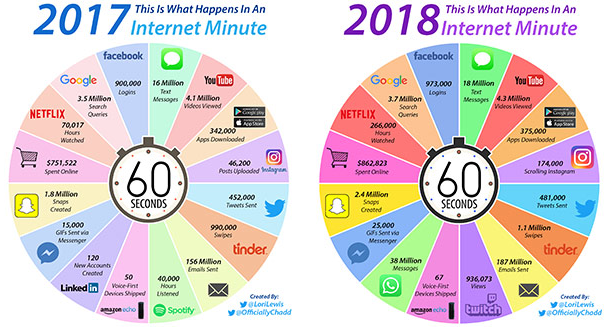
Once again, I can’t vouch for the accuracy of the numbers, so take them for what it’s worth. They say a picture says a thousand words, so consider my blog post complete for today! :o)
So, what do you think? How have the challenges of Big Data affected your organization? Please share any comments you might have or if you’d like to know more about a particular topic.

Sponsor: This blog is sponsored by CloudNine, which is a data and legal discovery technology company with proven expertise in simplifying and automating the discovery of data for audits, investigations, and litigation. Used by legal and business customers worldwide including more than 50 of the top 250 Am Law firms and many of the world’s leading corporations, CloudNine’s eDiscovery automation software and services help customers gain insight and intelligence on electronic data.
Disclaimer: The views represented herein are exclusively the views of the author, and do not necessarily represent the views held by CloudNine. eDiscovery Daily is made available by CloudNine solely for educational purposes to provide general information about general eDiscovery principles and not to provide specific legal advice applicable to any particular circumstance. eDiscovery Daily should not be used as a substitute for competent legal advice from a lawyer you have retained and who has agreed to represent you.
eDiscovery Privilege Review in the Trump-Cohen-Daniels Saga: eDiscovery Trends
This is not a political blog and we try not to represent any political beliefs on this blog. But, sometimes there is an eDiscovery component to the political story and it’s interesting to cover that component. This is one of those times.
According to Bloomberg (Cohen Prosecutors Accept Neutral Review, Using Trump’s Words, written by Bob Van Voris and David Voreacos), prosecutors probing President Donald Trump’s lawyer said they are prepared to use a neutral outsider to review documents seized this month from the home and office of Michael Cohen, which was an about-face from the government’s initial plan to scrutinize the documents itself.
In a five-page letter to the judge last Thursday, prosecutors, referencing the president’s statement that Cohen was responsible for only “a tiny, tiny little fraction” of his legal work, argued that the special master’s document review could move swiftly. Along with Cohen’s earlier acknowledgment that he had just three legal clients this year, that may have undermined the lawyer’s claim that the seized records may contain “thousands, if not millions” of privileged communications from clients, said former federal prosecutor Renato Mariotti.
In their filing, prosecutors said they now recommend a special master process proposed by retired U.S. Magistrate Judge Frank Maas (a United States Magistrate Judge for the Southern District of New York for 17 years and a frequent speaker at various conferences about eDiscovery trends and best practices) to weed out records that might be covered by the attorney-client privilege. They had previously asked that a separate team of prosecutors be permitted to review the documents first — a procedure routinely employed in other cases involving such materials.
“We believe that using Judge Maas or another neutral retired former Magistrate Judge familiar with this electronic discovery process and with experience in ruling on issues of privilege will lead to an expeditious and fair review of the materials obtained through the judicially authorized search warrants,” prosecutors said in a letter filed shortly before a court hearing scheduled for noon last Thursday.
In a separate letter filed with the court, Maas said that as special master he could analyze potential privileged materials through one of two methods. One would involve his review of a so-called privilege log, which would list all materials that any party says might be protected, as both Trump and Cohen have urged. The other would involve Maas directly reviewing the seized material himself to determine what may be privileged.
He preferred his own review, saying “privilege logs often are virtually useless as a tool to assist a judge or master, and their preparation is expensive and can cause delay.”
Prosecutors have said their probe is focused more on Cohen’s personal business and financial dealings than his legal work. They have seized documents relating to a 2016 payment made by a company Cohen set up to adult film actress Stormy Daniels, who claims to have had a tryst with Trump in 2006.
It will be interesting to see what happens from here. And, of course, I’m talking about from an eDiscovery perspective, of course! :o)
So, what do you think? Should special master review to determine privilege be based on the documents themselves or should it be based on review of privilege logs? As always, please share any comments you might have or if you’d like to know more about a particular topic.

Sponsor: This blog is sponsored by CloudNine, which is a data and legal discovery technology company with proven expertise in simplifying and automating the discovery of data for audits, investigations, and litigation. Used by legal and business customers worldwide including more than 50 of the top 250 Am Law firms and many of the world’s leading corporations, CloudNine’s eDiscovery automation software and services help customers gain insight and intelligence on electronic data.
Disclaimer: The views represented herein are exclusively the views of the author, and do not necessarily represent the views held by CloudNine. eDiscovery Daily is made available by CloudNine solely for educational purposes to provide general information about general eDiscovery principles and not to provide specific legal advice applicable to any particular circumstance. eDiscovery Daily should not be used as a substitute for competent legal advice from a lawyer you have retained and who has agreed to represent you.
Looking to the Future with CloudNine, Concordance and LAW PreDiscovery: eDiscovery Webcasts
CloudNine recently acquired the Concordance, LAW PreDiscovery and Early Data Analyzer platforms. So, who is CloudNine, why did they acquire these products and what is their vision for them going forward? If you’re an existing user of these products, now’s your chance to find out!
During the month of May, CloudNine will conduct the webcast Looking to the Future with CloudNine, Concordance and LAW PreDiscovery LIVE on three separate occasions. In this one-hour webcast, we will provide an overview of CloudNine, the vision for our new robust suite of products and how they will extend and enhance your data and legal discovery efforts. We’re conducting the webcast three different times to make the webcast presentation more interactive, giving existing customers of our products a chance to have their questions addressed, so you’ll want to register for one of these dates if you want to attend. The webcast will include both a presentation and a demonstration of our CloudNine platform:
Presentation Highlights:
- Who is CloudNine?
- What We Do and How We Solve the Problems
- Considerations for On-Premise, Off-Premise and Hybrid Approaches
- What the Acquisition Means for Current On-Premise Customers
- Looking to the Future with CloudNine Off-Premise and On-Premise Products
Demonstration Highlights:
- CloudNine Automated Legal Hold
- CloudNine eDiscovery Platform (Upload/Process/Review/Produce)
- CloudNine Automated Data Preservation and Collection
The three dates for the webcast are:
- Wednesday, May 2, 2018 (click to register here)
- Tuesday, May 8, 2018 (click to register here)
- Thursday, May 17, 2018 (click to register here)
All times are noon CST (1:00pm EST, 10:00am PST).
So, what do you think? Do you use Concordance, LAW or EDA? Then, come join us! And, as always, please share any comments you might have or if you’d like to know more about a particular topic.

Sponsor: This blog is sponsored by CloudNine, which is a data and legal discovery technology company with proven expertise in simplifying and automating the discovery of data for audits, investigations, and litigation. Used by legal and business customers worldwide including more than 50 of the top 250 Am Law firms and many of the world’s leading corporations, CloudNine’s eDiscovery automation software and services help customers gain insight and intelligence on electronic data.
Disclaimer: The views represented herein are exclusively the views of the author, and do not necessarily represent the views held by CloudNine. eDiscovery Daily is made available by CloudNine solely for educational purposes to provide general information about general eDiscovery principles and not to provide specific legal advice applicable to any particular circumstance. eDiscovery Daily should not be used as a substitute for competent legal advice from a lawyer you have retained and who has agreed to represent you.
Court Compels Discovery in Response to Party That Was Using Outdated Rule 26 Standard: eDiscovery Case Law
In Cen Com, Inc. v. Numerex Corp., No. C17-0560 RSM, (W.D. Wash., April 11, 2018), Washington Chief District Judge Ricardo S. Martinez ruled that the Plaintiff’s refusal to comply with the Defendant’s request for discovery using specific search terms was not justified, and that the Plaintiff must “fully comply with the subpoenas that Defendants served upon them and shall produce all responsive documents in a format that is accessible/readable by Defendants.”
Case Background
A request for discovery was issued by the Defendant for the founder and owner of the Plaintiff, along with two current employees of the Plaintiff, all of whom were former employees of the Defendant. The plaintiffs objected to the subpoenas “on the basis that it was an improper attempt to obtain discovery from a party employee,” and “that the subpoena is overbroad, unduly burdensome, and that the costs outweigh the potential for acquiring relevant information.”
The Defendant also filed a motion to compel the Plaintiff to use specific electronic search terms (“attorney w/2 general” and “consent w/2 decree”) related to a 2012 consent decree that Plaintiff entered into with Washington State’s Attorney General. The Plaintiff objected to the search terms regarding the consent decree as irrelevant.
As part of a counterclaim, the Plaintiff requested sanctions against the Defendant, claiming they withheld certain documents because of a pending motion for protective order, which was later denied by the Court. However, the Plaintiff continued to seek sanctions for the time period that it alleges Defendants were not in compliance with the stipulated ESI Order.
Judge’s Ruling
In Judge Martinez’s ruling, all of the Defendants’ motions were granted. Regarding the scope and relevance of the discovery request, it was noted that the Plaintiff was basing their refusal to comply on the former FRCP Rule 26 standard and not in line with the current version of Rule 26, which states discovery must be relevant to the claim and proportional to the needs of the case, while taking into account the parties’ access to relevant information and available resources, the importance of the discovery in resolving the matter, and whether the burden or expense of discovery outweighs its likely benefit.
Additionally, under Rule 37, “The party who resists discovery has the burden to show that discovery should not be allowed, and has the burden of clarifying, explaining, and supporting its objections.” Here the Plaintiff failed to explain specifically why the documents are not relevant, or that a search of the documents would be unduly burdensome, and instead only made the blanket statement that the documents sought “do not concern this matter and could not lead to relevant information.”
In regard to the Plaintiff’s counterclaim, Judge Martinez denied the motion for sanctions, citing Rule 37(d)(2): “A failure described in Rule 37(d)(1)(A) is not excused on the ground that the discovery sought was objectionable, unless the party failing to act has a pending motion for a protective order under Rule 26(c).”
So, what do you think? Was the ruling correct or were the Defendant’s requests “overly burdensome”? Please share any comments you might have or if you’d like to know more about a particular topic.

Case opinion link courtesy of eDiscovery Assistant.
Sponsor: This blog is sponsored by CloudNine, which is a data and legal discovery technology company with proven expertise in simplifying and automating the discovery of data for audits, investigations, and litigation. Used by legal and business customers worldwide including more than 50 of the top 250 Am Law firms and many of the world’s leading corporations, CloudNine’s eDiscovery automation software and services help customers gain insight and intelligence on electronic data.
Disclaimer: The views represented herein are exclusively the views of the author, and do not necessarily represent the views held by CloudNine. eDiscovery Daily is made available by CloudNine solely for educational purposes to provide general information about general eDiscovery principles and not to provide specific legal advice applicable to any particular circumstance. eDiscovery Daily should not be used as a substitute for competent legal advice from a lawyer you have retained and who has agreed to represent you.
Don’t Miss Our Webcast Today on Technology Assisted Review!: eDiscovery Webcasts
What is Technology Assisted Review (TAR)? Why don’t more lawyers use it? Find out in our webcast today!
Today at noon CST (1:00pm EST, 10:00am PST), CloudNine will conduct the webcast Getting Off the Sidelines and into the Game using Technology Assisted Review. In this one-hour webcast that’s CLE-approved in selected states, will discuss what TAR really is, when it may be appropriate to consider for your case, what challenges can impact the use of TAR and how to get started. Topics include:
- Understanding the Goals for Retrieving Responsive ESI
- Defining the Terminology of TAR
- Different Forms of TAR and How They Are Used
- Acceptance of Predictive Coding by the Courts
- How Big Does Your Case Need to Be to use Predictive Coding?
- Considerations for Using Predictive Coding
- Challenges to an Effective Predictive Coding Process
- Confirming a Successful Result with Predictive Coding
- How to Get Started with Your First Case using Predictive Coding
- Resources for More Information
Once again, I’ll be presenting the webcast, along with Tom O’Connor, who recently wrote an article about TAR that we covered on this blog. To register for it, click here. Even if you can’t make it, go ahead and register to get a link to the slides and to the recording of the webcast (if you want to check it out later). If you want to learn about TAR, what it is and how to get started, this is the webcast for you!
So, what do you think? Do you use TAR to assist in review in your cases? Please share any comments you might have or if you’d like to know more about a particular topic.

Sponsor: This blog is sponsored by CloudNine, which is a data and legal discovery technology company with proven expertise in simplifying and automating the discovery of data for audits, investigations, and litigation. Used by legal and business customers worldwide including more than 50 of the top 250 Am Law firms and many of the world’s leading corporations, CloudNine’s eDiscovery automation software and services help customers gain insight and intelligence on electronic data.
Disclaimer: The views represented herein are exclusively the views of the author, and do not necessarily represent the views held by CloudNine. eDiscovery Daily is made available by CloudNine solely for educational purposes to provide general information about general eDiscovery principles and not to provide specific legal advice applicable to any particular circumstance. eDiscovery Daily should not be used as a substitute for competent legal advice from a lawyer you have retained and who has agreed to represent you.

